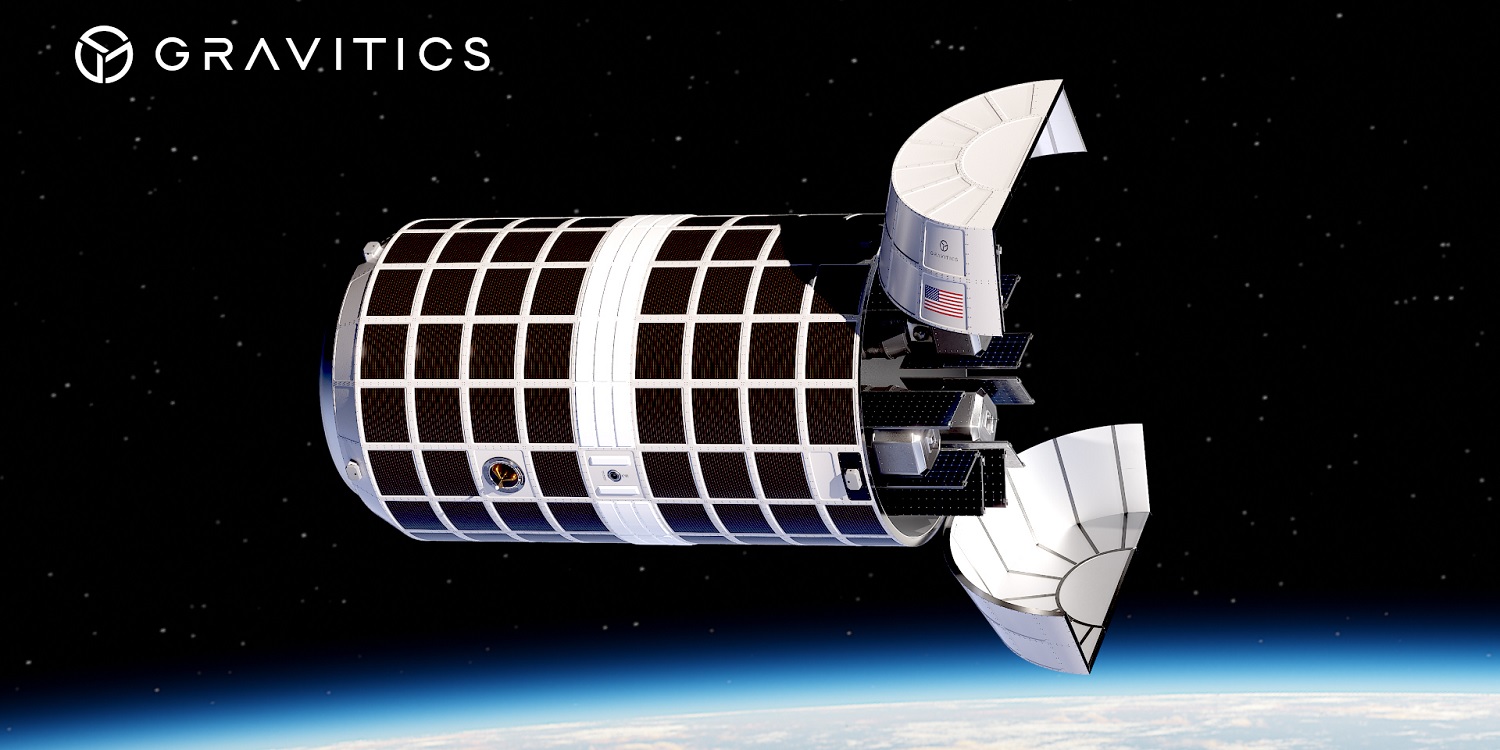
Gravitics, Inc., a leading innovator in space infrastructure, announced it has been selected for a Strategic Funding Increase (STRATFI) by SpaceWERX of the United States Space Force with potential funding of up to $60 million between government funds, Small Business Innovation Research (SBIR) funds, and private funds to demonstrate and fly the Orbital Carrier, a groundbreaking solution for tactically responsive space.
The Orbital Carrier is designed to pre-position multiple maneuverable space vehicles that can deliver a rapid response to address threats on orbit. This carrier will provide the U.S. Space Force with unprecedented flexibility and speed for in-space operations, significantly enhancing the nation's space defense posture.
This STRATFI funding selection represents a significant investment in Gravitics' vision and capabilities, enabling the company to accelerate the development and deployment of this critical technology.
"We're honored to partner with the U.S. Space Force on this critical initiative." Said Colin Doughan CEO of Gravitics. "The Orbital Carrier is a game-changer, acting as a pre-positioned launch pad in space. It bypasses traditional launch constraints, enabling space vehicle operators to rapidly select a deployment orbit on-demand."
The STRATFI program is designed to accelerate the transition of promising technologies from small businesses to operational use within the Space Force. This selection will provide Gravitics with the resources and support necessary to develop and demonstrate the Orbital Carrier platform, paving the way for its integration into the Space Force's future space architecture.
About Gravitics, Inc.
Gravitics, Inc. designs and manufactures large space structures, including orbital carriers, cargo logistics spacecraft, and space station modules. Gravitics is redefining space superiority and enabling a new era for commercial development in earth orbit and beyond.
About SpaceWERX
As the innovation arm of the U.S. Space Force and a unique division within AFWERX, SpaceWERX inspires and empowers collaboration with innovators to accelerate capabilities and shape our future in space. Headquartered in Los Angeles, SpaceWERX employs 40 military, civilian and contractor personnel executing an annual $457 million budget. Additionally, SpaceWERX partners with Space Systems Command's Commercial Space Office (COMSO) as a collaborative program. Since it was aligned under AFRL in Aug. 2021, SpaceWERX has executed 1106 contracts worth more than $897 million to strengthen the U.S. defense industrial base and drive faster technology transition to operational capability.
About AFWERX
As the innovation arm of the DAF and a directorate within the Air Force Research Laboratory, AFWERX brings cutting-edge American ingenuity from small businesses and start-ups to address the most pressing challenges of the DAF. AFWERX employs approximately 370 military, civilian and contractor personnel at four hubs and sites executing an annual $1.4 billion budget. Since 2019, AFWERX has executed 6,200 new contracts worth more than $4.7 billion to strengthen the U.S. defense industrial base and drive faster technology transition to operational capability.
Source: Gravitics Inc.



